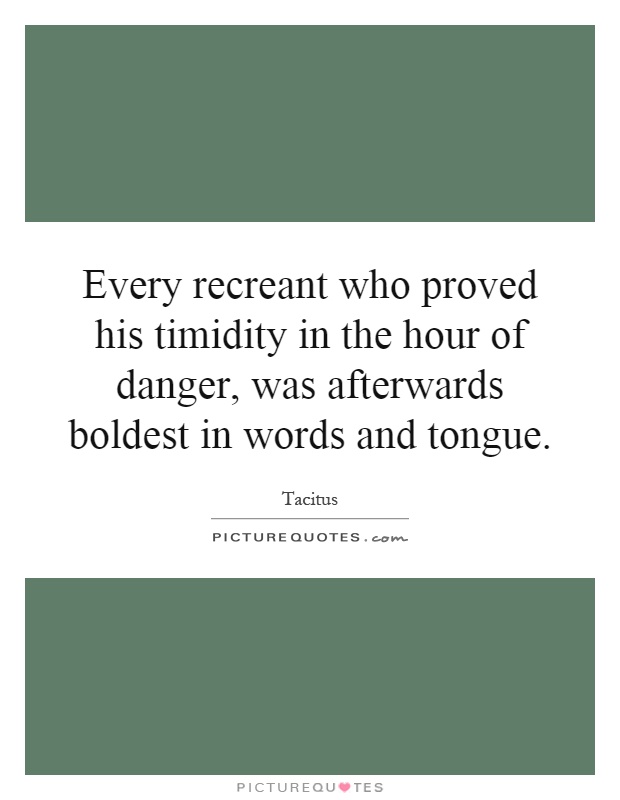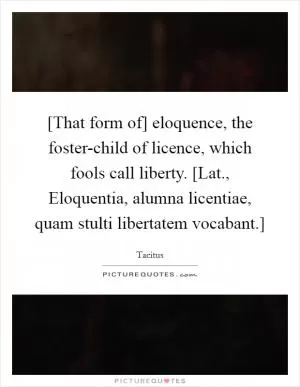Every recreant who proved his timidity in the hour of danger, was afterwards boldest in words and tongue

Every recreant who proved his timidity in the hour of danger, was afterwards boldest in words and tongue
The quote "Every recreant who proved his timidity in the hour of danger, was afterwards boldest in words and tongue" holds a significant meaning in the context of Tacitus, a Roman historian known for his sharp observations and critical analysis of human behavior. Tacitus often delved into the complexities of human nature, particularly in times of crisis and conflict.In the quote, Tacitus seems to be highlighting a common phenomenon where individuals who fail to display courage and bravery in moments of danger often compensate for their shortcomings by being overly vocal and boastful afterwards. This behavior can be seen as a defense mechanism to mask their insecurities and fears, projecting a false sense of confidence and strength to others.
Tacitus may have observed this pattern in various historical events and individuals he studied, where those who faltered in the face of adversity sought to redeem themselves through bravado and grandiose claims. This could be seen as a form of self-preservation, as individuals attempt to salvage their reputation and self-image by projecting a facade of fearlessness and boldness.
Furthermore, Tacitus may be suggesting that true courage and bravery are not demonstrated through mere words and bravado, but through actions and deeds in the face of danger. Those who talk the loudest may not always be the ones who possess genuine courage and fortitude when it truly matters.












 Friendship Quotes
Friendship Quotes Love Quotes
Love Quotes Life Quotes
Life Quotes Funny Quotes
Funny Quotes Motivational Quotes
Motivational Quotes Inspirational Quotes
Inspirational Quotes